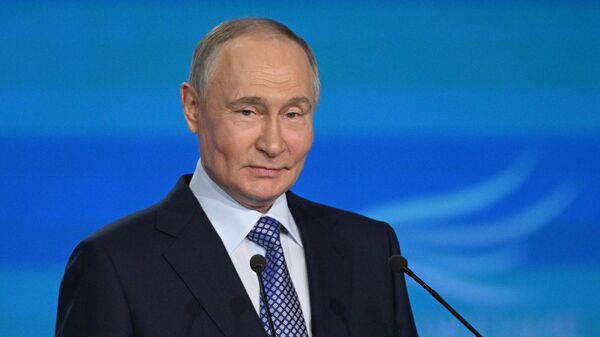A month after Sinwar’s elimination, the region remains instable and the future looks bleak
It’s been a month since Yahya Sinwar, the leader of Hamas in Gaza, met his end in Rafah after a confrontation with IDF forces.
That killing – although accidental – sent shockwaves through the Palestinians and their supporters. Israel presented the elimination of Sinwar as a great achievement. Officials have claimed that Gaza and the region will be a much safer place with Sinwar out of the picture.
But Dimitri Diliani, the spokesman for Fatah’s Reformist Democratic Faction, says the removal of Sinwar has not contributed to the stabilization of the region.
“The truth is that the elimination of Sinwar only sets the stage for bigger turmoil,” he said.
“It is likely to drive the organization toward an intensified radical stance. It will exacerbate an already volatile atmosphere, further inflaming regional tensions and potentially paving the way for an era of heightened resistance across Palestinian factions in the West Bank,” Diliani added.
Diliani has solid grounds to assume so. Even before the elimination of Sinwar, the West Bank had become fertile ground for Hamas, the Palestinian Islamic Jihad, and other groups that have established cells in the area and are confronting Israeli security forces.
The region has also produced multiple lone wolf attackers who have carried out – or attempted to do so – terror acts in the West Bank and inside Israel.
According to a report by the Shin Bet, Israel’s internal spy agency, the month of September saw eight significant attacks in the West Bank and Jerusalem, while 72 others were thwarted by the country’s security apparatus. Although the intelligence reports for October and November are not out yet, it is highly likely that radical cells and their sympathizers will continue to challenge Israel, staging sporadic attacks on civilians and military personnel.
Stability is nowhere in sight on the southern front either. Since the beginning of Israel’s ground invasion into Gaza on October 27, 2023, its security forces have lost some 373 people, and as long as Israeli troops remain in the area, the chances that soldiers will keep returning home in body bags are high.
However, stability and security are far from the only two goals that Israel has failed to achieve with the elimination of Sinwar. Another one is the complete disarmament of the group and its annihilation.
“It really depends on what Israel means by the elimination of Hamas,” said Walid Seyam, a Palestinian political analyst based in South Africa.
“If they mean clipping the nails of the organization and draining their military capabilities so that they cannot launch rockets again, then the answer is yes. If they mean a complete elimination of Hamas, then the answer is a definite no,” he argued.
The reason for this, says Seyam, is Hamas’ social activity that is deeply ingrained in Palestinian society.
Since its emergence in Gaza back in the 1980s, Hamas has been associated with help and assistance. They were the ones distributing food and providing medical aid. They were the ones raising funds to help the needy, and they were the ones educating the masses. For many Palestinians, this perception hasn’t changed. Some areas of Gaza are still heavily reliant on the Islamic group. Support for their military wing, Al Qassam Brigades, remains strong among some circles of Palestinian society, although the overall backing of the organization has shown a decline, as per a recent poll.
“Hamas started out as a charity organization, and with it they gained the experience of how to function without being centralized. Their lenience on Islamic socialism made them excel and pile up credibility amongst the people of Gaza,” explained Seyam.
“The same decentralized blue print is also used by Al Qassam brigade. Such structure allows them the flexibility to group, regroup, form and reform whenever and however the combat on the ground requires. And this is why we keep on hearing that Hamas as an idea cannot be destroyed by force,” he added.
Hamas has already announced that in March it intends to elect its new leader, sending a message to Israel and all skeptics that the show will go on, despite attempts to hurt the group’s activity.
Among potential successors are Khalil Al Haya, a deputy of Sinwar who is based in Qatar, Khaled Mashal, who led the political bureau of the group from 1996 until 2017, and the brother of Yahya Sinwar — Mohammed.
The name of the person who will be elected is likely to remain a secret for security reasons, but both experts are certain that whoever takes the top job will likely adhere to a hard line.
“The new leader is likely to emerge as a figure deeply aligned with Yahya Sinwar’s legacy,” said Diliani.
“Even more so, the magnitude of devastation and civilian suffering in Gaza will only galvanize Hamas’s next leader to embrace a more hardline position, propelled by both a sense of duty to avenge these losses and a commitment to resist. In this context, moderation has little room to survive, while a more hardened Hamas stance to mirror that of the Israeli government appears almost inevitable,” he added.
During slightly over a year of fighting, Israel's operation has claimed the lives of at least 43,799 people, many of whom were elderly, women and children. Thousands of others are wounded or unaccounted for. The war has also destroyed vast parts of Gaza. It has damaged essential infrastructure and key facilities and made the area uninhabitable.
Seyam agrees with this assessment by Diliani and says the dire situation in Gaza coupled with the elimination of all the familiar “hawks and doves” will produce a void that will easily be filled by Iran.
That could spell many problems for Israel. Throughout the years, Tehran has been giving diplomatic, financial and military backing to armed Palestinian groups, and if a new Hamas leader takes a more hawkish approach, chances are high that the Islamic Republic’s involvement in Gaza will only get stronger. And if it does, it might serve as an excuse for Israel not to lay down arms.
“Sinwar’s existence served as a justification for Israel’s military operation in Gaza. Now that he is gone, will Israel continue to have this credibility?”

 5 months ago
35
5 months ago
35








 We deliver critical software at unparalleled value and speed to help your business thrive
We deliver critical software at unparalleled value and speed to help your business thrive






 English (US) ·
English (US) ·